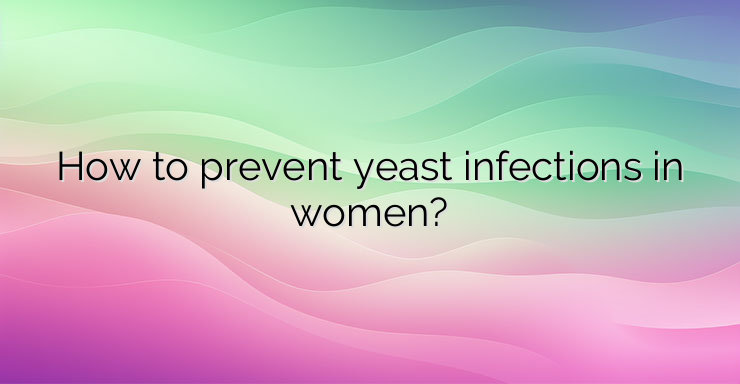Approximately 75% of women develop at least one yeast infection in their lifetime. Factors such as pregnancy, diabetes, a weakened immune system, taking antibiotics or birth control pills with high doses of estrogen, and the use of vaginal douches or sprays increase the risk. Although we cannot completely prevent yeast infections, we can reduce the risk by following a healthy lifestyle and avoiding factors that increase them. Symptoms of a fungal infection are hypersensitivity or discomfort in the intimate area, often accompanied by burning or itching. There is often a white or cream-like discharge that may be foul-smelling. The discomfort may increase during sexual intercourse or when urinating. In some cases, red or irritated skin appears around the vagina. To prevent yeast infections in women, it is important to follow a few rules: It is preferable to wear breathable cotton underwear that does not retain heat or moisture, helping to keep the skin dry. You should avoid wearing clothes with too dense fabrics, which can increase the temperature and humidity around the intimate areas. The use of feminine hygiene products, such as vaginal douches, which can disrupt the balance of beneficial bacteria, should be limited. Avoiding hot baths is recommended. Tampons or sanitary napkins should be changed regularly, especially during the cycle. Women with diabetes should only take antibiotics when needed. Treatment for yeast infections usually involves antifungal medications that can be applied directly to the affected area or taken by mouth. Topical creams, lotions, or vaginal suppositories are usually effective for treating the infection locally. For more severe cases, the doctor may prescribe a systemic antifungal treatment. It is important to follow the doctor’s instructions and complete the entire course of treatment, even if symptoms are absent. Yogurt with active cultures can help preserve good bacteria in the fight against fungal infections. Eating sauerkraut, kimchi, garlic, ginger and honey is also recommended. You should limit the consumption of sugars and carbohydrates, which can “feed” the fungal infection. References 1. https://www.webmd.com/women 2. https://www.healthxchange.sg/women/urology/tips-prevent-yeast-infections 3. https://www.ncbi.nlm.nih .gov/pmc/articles/PMC3329005/ 4. https://pharmeasy.in/blog/try-these-simple-home-remedies-for-fungal-infections/#:~:text=Eat%20Yoghurt%20and%20Probiotics&text =Yoghurt%20and%20other%20probiotics%20have,another%20excellent%20source%20of%20probiotics


Leave a Reply